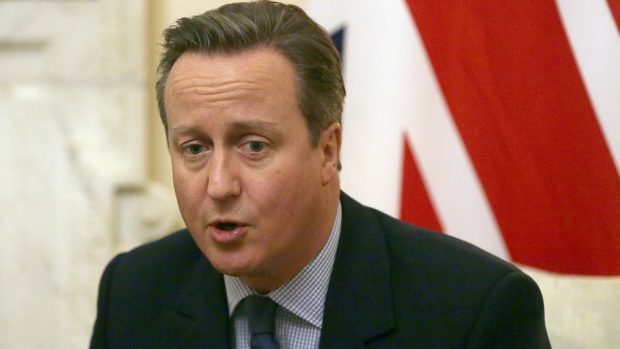Scots are largely in favour of the UK remaining in the European Union but support for a leave vote has risen to one in five, according to a new poll.
The survey by TNS found the gap between those who would vote to stay and those who want to leave has narrowed.
Some 44% of the 1,016 asked said they would opt to remain in, down from 49% in May and 47% in September.
Support for an Out vote has increased to 21% – about one in five – from 19% in May and 18% in September.
Almost a third (29%) said they did not know how they would vote.
The numbers emerged as Conservative peer Lord Rose, chairman of Britain Stronger in Europe, said he believed the In campaign would win by a “substantial margin”.
Meanwhile, David Cameron held further talks on the EU reform proposals with European Council President Donald Tusk and other leaders on the fringe of the Syria donors’ conference in London.
At the same time, MPs debated the Tusk blueprint in the Commons for the third day running.
It sets out plans for an “emergency brake” on benefits for migrant workers, as well as measures to give national parliaments more power to block EU laws.
Head of TNS Scotland Tom Costley said the latest poll showed it was still “all to play for”.
He added: “With the referendum on membership of the EU looking increasingly likely to take place in 2016, people may be starting to focus on Britain’s membership of the EU – despite concerns expressed by the first minister about holding the referendum in June so soon after elections to the devolved assemblies.”
The poll, which also covered Holyrood voting intentions and found the SNP lead remains significant, was carried out between January 6 and 25.
Mr Cameron, who faced a barrage of criticism when he outlined the draft reform package in the Commons on Wednesday, came under renewed fire yesterday.
Conservative MP John Baron denounced the “red card” proposal, in which draft laws could be blocked or amended if 55% of national parliaments within the EU agree, as having “more holes than a Swiss cheese”.
And he condemned the Government’s framing of the EU debate around the emergency brake, which aims to curb full access to benefits over four years for EU citizens working in Britain, as it “feeds into a negative narrative about immigrants”.
The prime minister was also the butt of criticism in the House of Lords, where peers debated the Tusk proposals.
Former Tory chancellor Nigel Lawson, now Lord Lawson of Blaby, described the draft deal – which must be agreed by all 27 other member states – as “inconsequential scraps”.
But Lord Rose, former chief executive of Marks and Spencer, endorsed the PM, hailing the reform package a “step forward” that would strengthen Britain’s hand.
He told reporters at Westminster: “There aren’t any second chances on this one. We have to get it right.
“We will not be able to go backwards because we think we have made a mistake.”
Asked how the In campaign would avoid being swept away by the anti-establishment tide emerging around the globe, he replied: “If you give people the facts and the truth, then you will get respect.”
Former home secretary Alan Johnson, the leader of Labour’s campaign to remain in the EU, dismissed the argument about migration numbers as a “sideshow” and called on pro-EU politicians to make a positive case for staying in.
